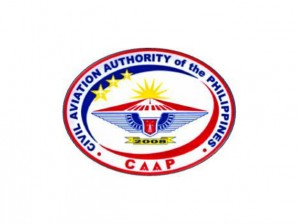Civil aviation body denies man caught selling drugs is an active pilot
 MANILA, Philippines—The Civil Aviation Authority of the Philippines (CAAP) denied Friday that Rioklyn Toledo, who was recently arrested in Taguig City for allegedly selling metamphetamine hydrochloride or “shabu,” was on its roster of active commercial pilots with licenses to fly.
MANILA, Philippines—The Civil Aviation Authority of the Philippines (CAAP) denied Friday that Rioklyn Toledo, who was recently arrested in Taguig City for allegedly selling metamphetamine hydrochloride or “shabu,” was on its roster of active commercial pilots with licenses to fly.
CAAP clarified earlier reports and statements which, it claimed, marred the image and reputation of not just the Filipino pilots but all the pilots in the world as well.
“This report on Toledo has great repercussion on us pilots. The public may have apprehensions about travelling by air because of this,” said Captain Armando Ricohermoso, chief of the CAAP licensing department.
The Philippine Drug Enforcement Agency said earlier that Toledo, 40, of Parañaque City, was arrested during an entrapment operation on July 14 in Taguig City. It added that Toledo was reported to supply the needs of some of the pilots and some foreign tourists.
But according to CAAP spokesperson Joy Songsong, a check of their records showed that Toledo’s Airline Transport Pilot License (ATPL) bearing an LET 410-rating expired on January 21, 2012 and he is no longer actively flying.
Among the requirements for applications for a Philippine license to fly is a medical certificate that assures the physical and psychological fitness of an applicant following a series of tests, including a drug test, conducted by the CAAP’s Office of Flight Surgeon and Medicine (OFSAM).
“We at CAAP also conduct random drug testing on airline pilots, including cabin crew, aside from the annual tests that the commercial airlines like PAL and Cebu Pacific initiate,” said Dr. Rolly Bayaban, OFSAM officer in-charge.
CAAP officials said that as a regulatory body, the CAAP strictly complies with the provisions of Philippine civil aviation regulations specially with respect to the issuance of licenses to pilots of commercial planes.
They also cited Republic Act 9497, the law that created CAAP, which provides sanctions and penalties ranging from suspension to license revocation, for any airman found to be in possession or using psychoactive substances that may hamper judgment and job performance.














